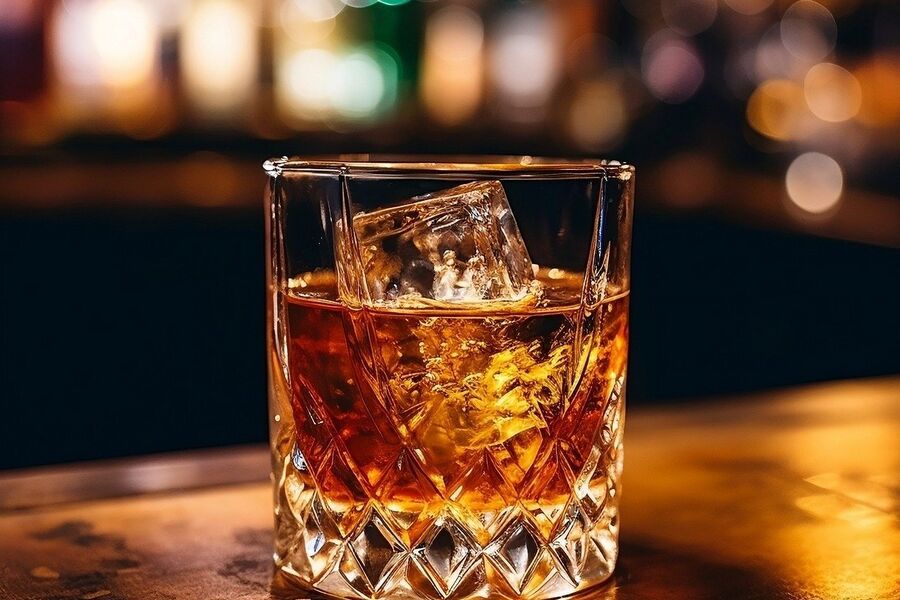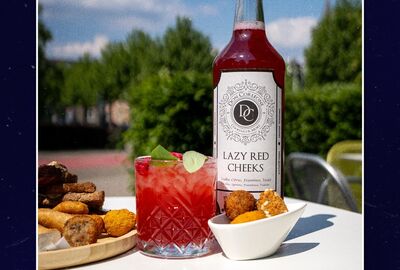
If you ended up here, it probably means you have an interest in whisky and enjoy a good dram as much as we do. But did you know that there is actually a special day dedicated to honouring whisky? Yep, every third Saturday in May (this year on 18 May) is World Whisk(e)y Day! With more than 3,000 whiskies in our liquor shop, we are big fans of this holiday. So we don't let this day pass by lightly, but let you discover a bit more about this fantastic drink.
Over the years, we have dedicated countless blogs to this famous drink. In this blog, we bring it all together and offer you a quick course on the world of whisky. Do you feel like an experienced rot in the world of whisky? Then after reading this blog, be sure to test your knowledge about whisky!
What is whisky?
Whisky is a spirit made from grain, yeast and water. It is distilled anywhere in the world where grains grow. It has a rich history dating back centuries. Its origins are often attributed to Scotland, where it developed into an iconic drink. The name 'whisky' has its origins in the Celtic word "uisge beatha", which translates to "water of life". Over time and through rich Scottish and Irish history, whisky has evolved into the diverse drink we know today, with each country and region adding its own unique style and flavour to the character of whisky.
These whisky newcomers from 2023 went the hardest >
Is it Whisky or Whiskey?
The correct spelling of the word depends on what region you are in and where the drink comes from. Generally, "whiskey" is used in countries such as Scotland, Canada and Japan, while "whiskey" is the usual spelling in countries such as Ireland and the United States.
Besides the visible spelling difference, there are also differences in the way whiskey and whiskey are produced. Scotch whiskey is generally distilled twice, while Irish whiskey is usually distilled three times. There are also differences in the grains used, the casks in which the drink is matured and even the flavour profiles. You can often tell where a whisk(e)y comes from by its smell and taste.
So, when talking about Scotch whisky, use "Whisky". Examples include: Glenglassaugh, Arran and Kilchoman.
If you're talking about Irish whiskey, use "Whiskey". Examples are: Sailor's Home Irish Whiskey, Teeling Whiskey, The Irishman and The Pogues.
Have you read our blog about Sailor's Home Irish Whiskey yet? >
When can whisky bear the name 'whisky'?
The rules for using the name 'whisky' vary from country to country and mainly depend on the maturation period in wooden casks, denoted by 'YO'. Whisky may be so called in 99% of cases worldwide if it has been aged in oak casks for at least three years.
However, it is a general legal requirement that any whisky, regardless of origin, must contain at least 40% alcohol at bottling.
What types of whisky are there?
There are MANY types of whisky, all of which are worth exploring. In one of our earlier blogs, we discussed in detail the seven main categories and the whiskies that are unique in that they are only produced within specific country borders or even states. You can read all about them here.
Whisky in sherry casks
If you delve further into the world of whisky, you will discover that there are a variety of casks in which the spirit can mature. Think port casks, Madeira casks, red wine casks and many more. A question we regularly hear is "Has this whisky been matured in sherry casks?". It seems like a simple question, and most people are satisfied with a simple yes or no. Yet sherry is not just sherry, and it can be useful to know the differences. You can read about them here!
Which glass is best to drink whisky from?
Choosing the right whisky glass is like finding the perfect partner for your whisky: it can make a world of difference. But with so many different types of whisky glasses on the market, finding the perfect one can be an exciting treasure hunt. Are you ready to take your whisky experience to the next level? Then be sure to read this blog.
No-age statement whisky
A "no-age statement" (NAS) whisky is a whisky whose bottle does not state how old the whisky is. Traditionally, whisky bottles contain a label indicating how long the whisky was aged before bottling, such as "10 years old" or "12 years old". In contrast, a no-age statement whisky can contain whisky of different ages and is usually blended by the master blender to achieve a desired flavour profile, regardless of the age of the individual whiskies included. This allows producers to be more flexible in creating unique flavour experiences and releasing new products without waiting for a specific age.
Producers often opt for this when older whisky is supplemented with younger whisky. This is because, by regulation, the age of the youngest whisky in the blend must always appear on the label. This is not desirable when most of the blend is older (and therefore more valuable). Conversely, one can also choose not to state an age when mainly young whisky is supplemented by a small amount of (very) old whisky. In that case, the whisky can often be sold at a higher price. With growing demand for whisky, it can be difficult to keep enough aged whiskies in stock. NAS whiskies help to meet demand by using younger whiskies.
A few more key terms at a glance
There are many terms in the world of whisky that are useful to know when delving into this fascinating drink. Here are a few:
- Single Malt: Whisky made from barley in a single distillery.
- Blended Scotch: A blend of malt and grain whiskies from different distilleries.
- Peat: Dried peat used during the malting process, resulting in smoky flavours.
- Angel's Share: The part of whisky that evaporates during the maturation process in casks.
- Cask Strength: Whisky bottled straight from the cask without dilution.
- Finish: The period when the whisky is matured in another cask after the main maturation process.
- Master Blender: The person responsible for blending different whiskies to achieve a desired flavour profile.
- Nosing: The process of smelling the whisky to identify the aromas before taking a sip.
- Mash Bill: The mix of grains used in making whisky, for example barley, maize, rye and wheat.
- Solera: A method of maturing whisky in which small quantities of whisky are transferred between casks of different ages.
- Chill Filtration: A process in which whisky is chilled to remove fatty acids before bottling.
- Dram: A traditional Scottish term for a measure of whisky, usually about 25-35 ml.
Do you know these 10 whisky logos? Take the quiz

Marketing • Blogger
As a creative jack-of-all-trades in the marketing world, I also bring that imaginative flair to my drink choices. Whether on a night out, sunny vacation or social gathering with girlfriends, I'm always in my element with a refreshing cocktail in hand. Cocktails have stolen my heart because of the endless possibilities to experiment and explore. My favorite cocktail of the moment is the "Lazy Red Cheeks"! A delicious cocktail using vodka as a base. I love vodka because it mixes perfectly with non-alcoholic drinks. My favorite spirit? Rum!








